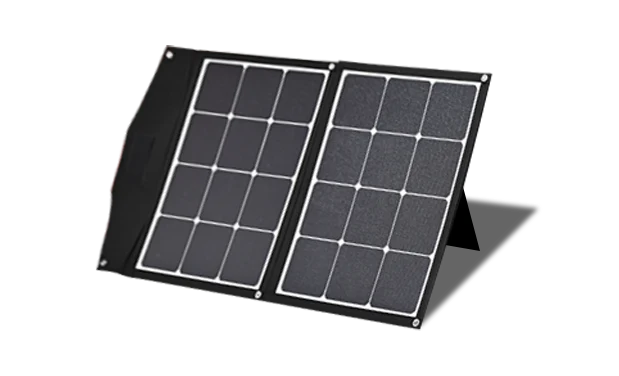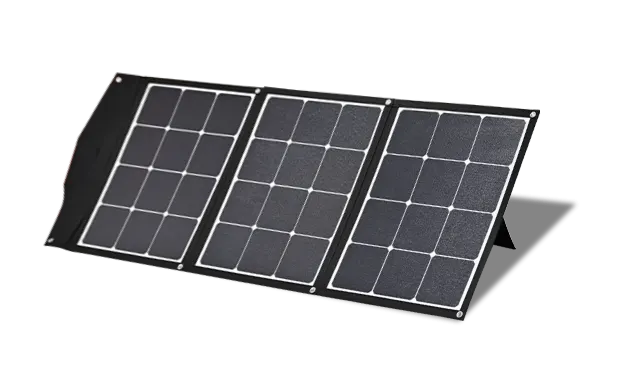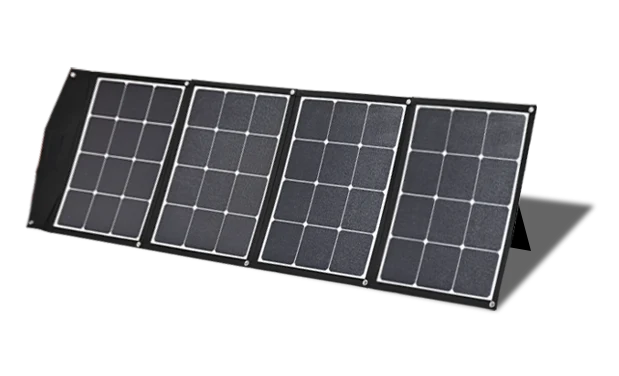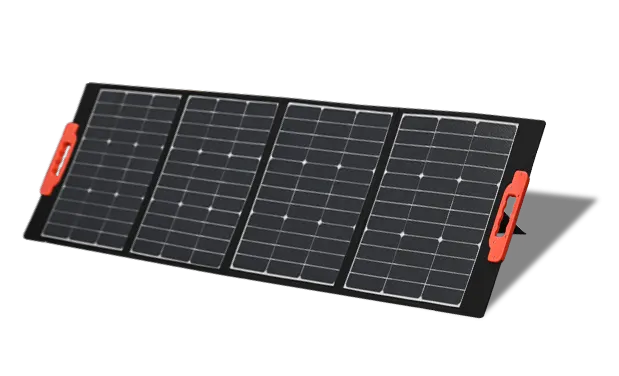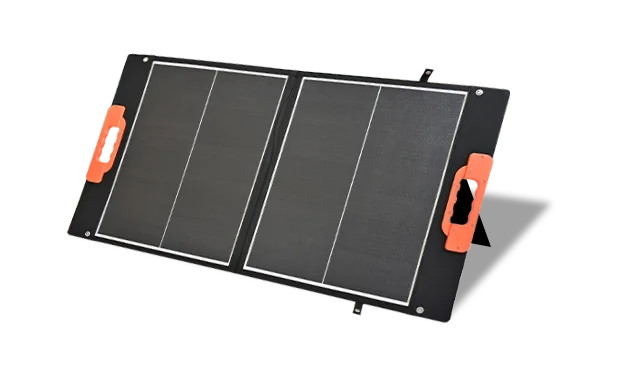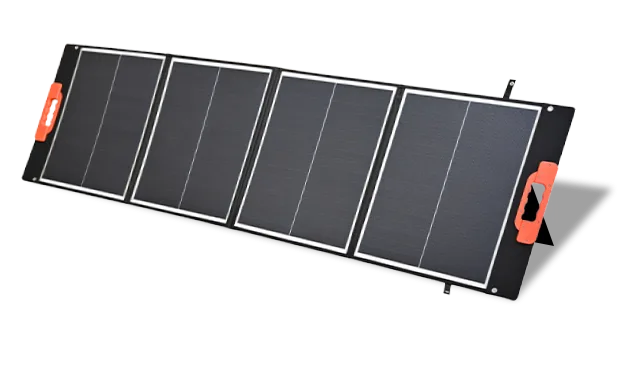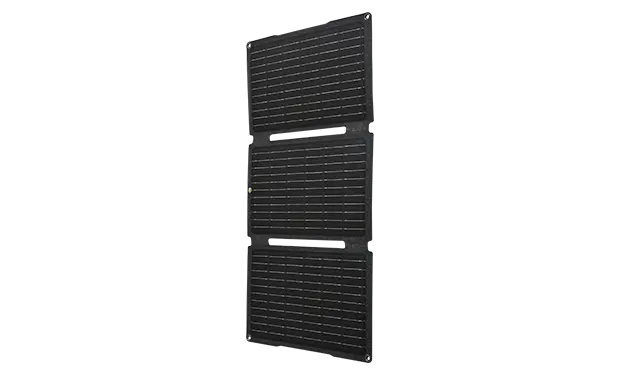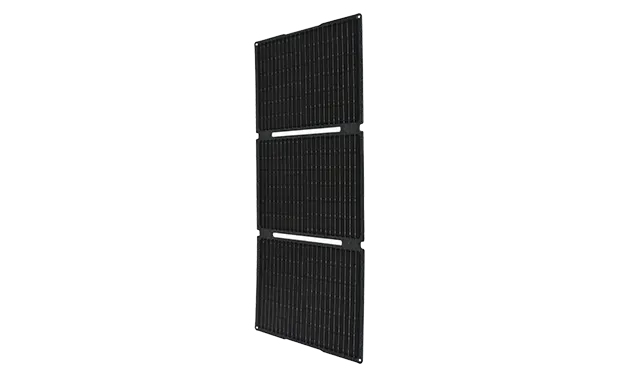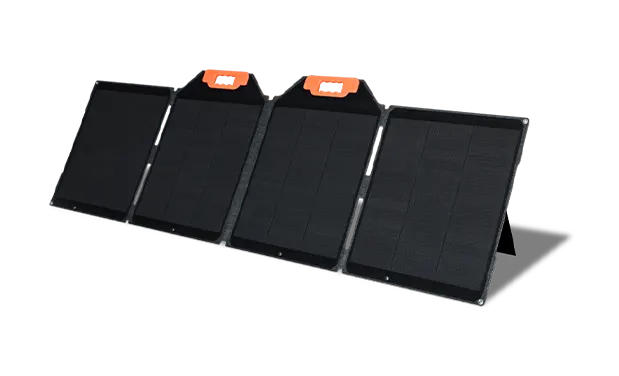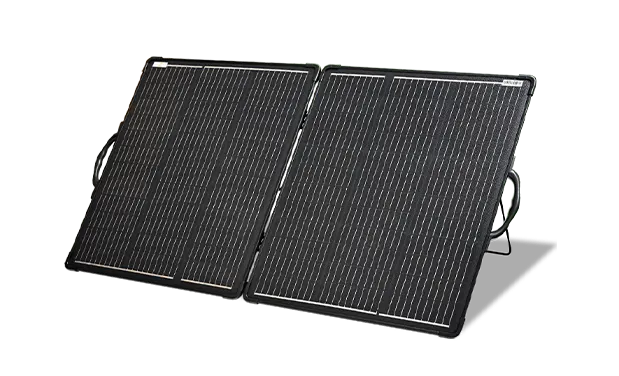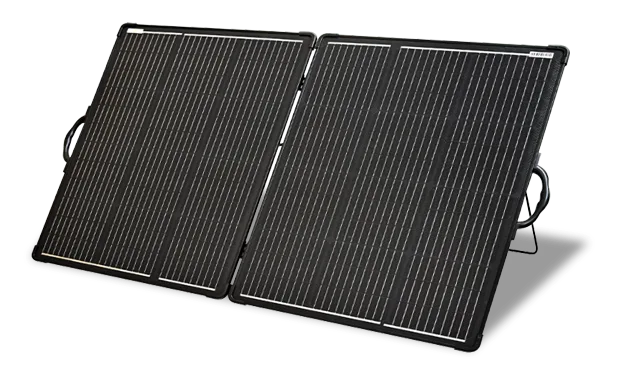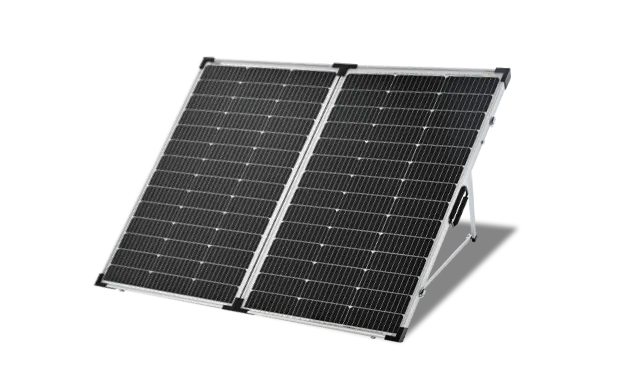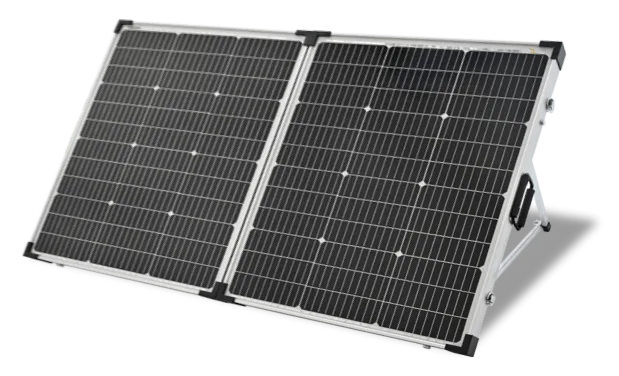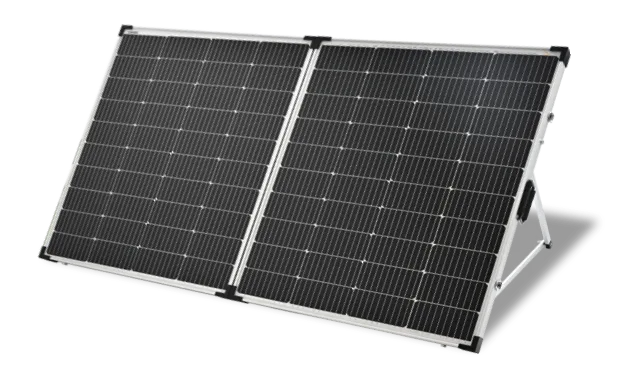Choosing the Best Battery for Your RV: AGM vs. Lithium Batteries
With the increasing popularity of lithium batteries in RV solar systems, dealers and customers may find themselves overwhelmed with information. They need to make a choice between traditional lead-acid batteries and lithium batteries. Here are some recommendations that can help customers weigh the advantages of different battery types and make a more informed decision.
What are the challenges associated with lithium RV batteries? Are they truly more expensive? What advantages do they offer compared to lead-acid batteries? Should RVs stick with traditional AGM batteries or consider switching to lithium batteries? Below are some suggestions to assist customers in evaluating the pros and cons of AGM and lithium batteries to make a wiser choice for the best battery for solar rv.
AGM Battery and Lithium RV Battery Technology
AGM batteries have proven to be a time-tested technology due to their longer existence. However, lithium RV batteries may also offer several advantages. When it comes to charging at freezing temperatures (0°C and below), AGM batteries perform exceptionally well, while lithium batteries require temperature regulation in sub-zero conditions. As for lead-acid batteries, they have an advantage in cold weather usage, as they can operate at temperatures below freezing, although their performance may slightly decline. What about lithium batteries? Lithium RV batteries exhibit higher discharge efficiency in cold weather; however, charging them in sub-zero temperatures can potentially lead to damage, rendering them unusable
Overall Lifespan and Cost
Budget plays a significant role in deciding which battery to purchase. Since lithium batteries are relatively expensive, choosing traditional AGM batteries may seem like the obvious choice. So, what exactly leads to this price difference? When considering RV batteries, the initial purchase price and the average expected lifespan have profound implications for long-term ownership costs. This can be a deal-breaker for some, making the choice between AGM and lithium batteries more evident.
Lithium RV batteries are often more costly than traditional AGM batteries, primarily due to the cheaper material composition of AGM batteries. Furthermore, they have a longer lifespan, making them a more cost-effective option. However, it’s essential to weigh the fact that lithium batteries typically have a longer average lifespan, which can be an attractive aspect.
What is the cost of AGM RV batteries?
The average cost of RV AGM batteries ranges from $200 to $250.
What is the cost of lithium RV batteries?
The average cost of lithium RV batteries falls between $350 and $700. While prices tend to decrease over time as lithium materials become more refined, technology and availability are rapidly advancing
What is the typical lifespan of AGM RV batteries?
The typical lifespan of AGM RV batteries is around 3 to 5 years
What is the typical lifespan of lithium RV batteries?
With proper maintenance and diligent charging, the average lifespan of lithium RV batteries can range from 8 to 10 years and potentially even up to 20 years. This aspect is crucial to consider during the decision-making process as it can offset the initial cost of lithium batteries. Several points highlight the differences between lithium and AGM batteries:
AGM batteries are highly sensitive to deep discharges, meaning the deeper the battery discharge, the shorter its cycle life. It is typically recommended to limit the depth of discharge (DOD) of AGM batteries to 50% of their capacity to maximize cycle life. However, the limited 50% DOD translates to the need for more batteries to meet the desired capacity, resulting in higher initial costs and requiring more storage space.
In contrast, lithium (LiFePO4) batteries are less affected by deep discharges, thus offering a longer cycle life. Their DOD ranges from 80-90%, meaning fewer batteries are required to achieve the desired capacity, reducing storage space requirements.
We will delve into the depth of discharge in more detail later. Here are the initial costs per kilowatt-hour capacity:
– AGM Battery: $221
– Lithium Battery: $530
Lifecycle costs per kilowatt-hour capacity:
– AGM Battery: $0.71
– Lithium Battery: $0.19
These data underscore the economic and performance advantages of lithium batteries for long-term use
Technology
Understanding the technology used in batteries can better help you choose the best battery for solar rv .While lithium batteries may have some advantages, AGM batteries are still a technology that has stood the test of time due to their longer existence. At sub-zero temperatures, AGM batteries exhibit relatively good charging performance, albeit with some efficiency impact. Unlike AGM, lithium batteries require temperature regulation for use in conditions below freezing.
AGM RV batteries have been around for a long time and have continuously evolved and improved in terms of size, weight, performance, and maintenance.
Lithium battery technology is continually advancing, which might mean a reduction in the initial purchase price and the potential for better performance in the next generation of batteries. However, if you invest in lithium batteries and a more cost-effective and high-performing next-generation battery pack emerges in the next few years, you might experience some ‘buyer’s remorse.
Size and Weight
Lithium RV batteries are typically smaller and lighter than AGM batteries, making them particularly suitable for small RVs such as teardrop campers, pop-up campers, and compact travel trailers, where space is often at a premium. Another advantage of lithium batteries is that they don’t contain the heavier lead-acid found in AGM batteries, resulting in reduced weight. With lithium batteries having a high DOD of 80-90%, fewer batteries are typically needed to achieve the desired capacity, meaning less space is occupied. Therefore, compared to traditional AGM batteries, lithium batteries can significantly reduce the volume and weight they occupy.
In summary, while both are not overly heavy, you can still more easily maneuver lithium batteries in and out of an RV compared to AGM batteries of the same capacity
Discharge
The depth of discharge of a battery refers to the percentage of its total capacity that has been discharged (used) within one charging cycle. A lithium battery with a total capacity of 100Ah (ampere-hours) can provide you with 80Ah-90Ah (or discharge to 80%-90%), while an AGM battery provides 50Ah (or discharges to 50%) before requiring recharging.
Based on this data, for those who use their RV for only a few months at a time, AGM batteries might be a better choice, whereas lithium batteries may be more suitable for those who stay off the grid for extended periods.
Are lithium batteries better than AGM batteries?
Despite the higher initial cost of lithium batteries, their longer lifespan provides a significant return on investment. In fact, they continue to perform well even when the charge drops below 50%, and they are lighter and occupy less space, which is advantageous for RV use.
AGM batteries are popular because they are not only usable for RV batteries but also more budget-friendly. If you currently have budget constraints but plan to upgrade to the next generation of lithium batteries within the next 5 to 6 years, then AGM batteries might be a more suitable choice. In this scenario, opting for AGM batteries could indeed be a wiser decision.
The battery bank is the core of your RV power system.
The battery bank is the core of your RV power system. Without batteries, your RV wouldn’t be able to store electrical power. The battery bank is where the energy captured by the solar panels is stored for use when needed. Solar panels transmit energy into the battery bank.
However, not all battery banks are created equal, and not all of them are suitable for use in solar systems due to the unpredictability of solar charging. In solar applications, lithium batteries are generally considered a superior choice compared to lead-acid batteries.
How to Connect Solar Panels to RV Batteries
From the previous content, we’ve learned how to choose RV batteries. Regardless of the battery type you choose, it won’t affect your choice of RV flexible solar panels. RV solar power systems can vary greatly under different circumstances, especially when installing larger systems, having confidence in your electrical connections is crucial. For high-power systems or kits, voltage isn’t a danger, so anyone can install them. Regardless of the system’s size, here are advanced instructions for connecting the components.
Assuming you’ve purchased a kit containing the components of a solar panel system and have installed a battery or battery bank in your RV, your kit will include the following:
– One solar panel (or multiple, depending on the product you’ve chosen).
– A charge controller.
Best batteries for solar RV 2023
There are many options for solar RV batteries, depending on your budget, capacity, and performance needs. Here are some of the best solar batteries for RVs in 2023, based on web search results:
| Parameter / Brand | Tesla | Alpha Smile5 ESS | Moixa | Enphase | Huawei | Puredrive | Powervault |
|---|---|---|---|---|---|---|---|
| Usable Capacity (kWh) | 13.5 | 10.1 | 4.8 (expandable to 9.6) | 3.4 or 10.1 | 5, 10, or 15 | 5 or 10 | 4.1 or 8.2 |
| Cost (Installed) | $10,000 | $6,000 | – | – | – | – | – |
| Design | Sleek | Modular | – | – | Compact and lightweight | – | Modular |
| Inverter | Built-in | Hybrid | – | Integrated with Enphase | Modular | – | Smart management system |
| Warranty | 10 years | 10 years | 20-year guarantee | – | – | 15 years | – |
| Additional Features | Smart monitoring and control | Modular design, value for money | 20-year warranty, lifetime performance promise | High efficiency, fast discharge rate | Modular design, small battery size | Wide temperature range, high efficiency | Scalability, smart management system |
| Capacity Options | – | – | – | – | – | – | Up to 12 batteries in parallel |
| Temperature Range | -20°C to 50°C | -20°C to 50°C | -20°C to 40°C | -20°C to 45°C | -10°C to 50°C | -20°C to 60°C | -10°C to 40°C |
Tesla Powerwall 2: This is the best battery for usable capacity, with a whopping 13.5 kWh of storage. It also has a sleek design, a built-in inverter, and smart features that allow you to monitor and control your energy usage. However, it is also one of the most expensive batteries, costing around $10,000 to install.
Alpha Smile5 ESS 10.1: This is the best battery for value for money, offering 10.1 kWh of storage for around $6,000 installed. It also has a modular design, allowing you to add more batteries if you need more capacity. It comes with a 10-year warranty and a hybrid inverter.
Moixa Smart Battery: This is the best battery for warranty, with a 20-year guarantee and a lifetime performance promise. It has a capacity of 4.8 kWh, which can be expanded up to 9.6 kWh. It also has smart features that optimize your energy usage and allow you to sell excess power back to the grid.
Enphase Encharge: This is the best battery for additional features, with a high efficiency of 96% and a fast discharge rate of 3.84 kW. It also integrates seamlessly with Enphase microinverters and solar panels, creating a complete solar system. It has a capacity of 3.4 kWh or 10.1 kWh, depending on the model.
Huawei Luna 2000: This is the best small battery, with a compact and lightweight design that can fit in any space. It has a modular design, allowing you to add more batteries if you need more capacity. It has a capacity of 5 kWh, 10 kWh, or 15 kWh, depending on the number of modules.
Puredrive PureStorage: This is the best battery for extreme temperatures, with a wide operating range of -20°C to 60°C. It also has a long lifespan of 15 years and a high efficiency of 95%. It has a capacity of 5 kWh or 10 kWh, depending on the model.
Powervault P4: This is the best battery for scalability, with a modular design that allows you to add up to 12 batteries in parallel. It also has a smart management system that optimizes your energy usage and maximizes your savings. It has a capacity of 4.1 kWh or 8.2 kWh, depending on the model.





